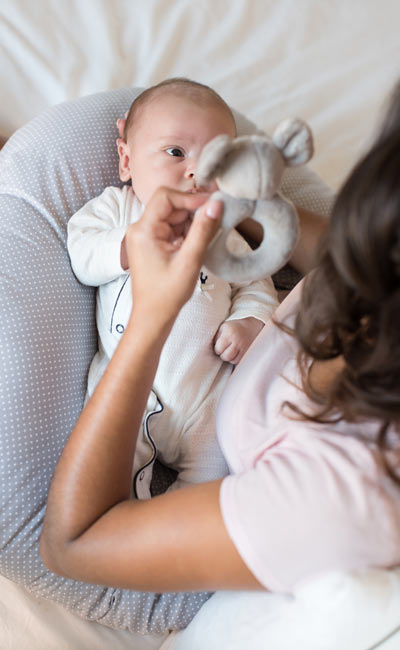For Parents
What is this research study about?
We are asking your permission for your baby to be in this research study of different treatments for mild hypoxic-ischemic encephalopathy (HIE).
It is known that body cooling (called therapeutic hypothermia) helps moderate to severe HIE. However, body cooling has not been tested on mild HIE. Currently, different hospitals treat babies with mild HIE differently. Some hospitals treat babies with mild HIE with body cooling; other sites treat babies with non-cooling (called normothermia).
It is known that body cooling helps moderate to severe HIE.
The purpose of this study is to compare babies from hospitals that treat babies with mild HIE using body cooling with babies from hospitals that treat babies with mild HIE using non-cooling.
Why am I being asked if I want to consider this study for my baby?
Your baby is invited to participate in a research study because he/she has a condition called mild HIE. Before or soon after your baby was born the oxygen and blood supply through the placenta was disrupted briefly.
What will happen if my baby is enrolled in this study?
Each hospital’s standard-of-care treatment for mild HIE will be applied irrespective of being enrolled in this study. The study investigators will review and collect data that contains no patient identifiers from your baby’s hospital records, mother’s medical records, and follow-up study visits to calculate the results of the trial.
If enrolled your baby will receive:
-
- Enrollment: Neurological Exam
- Discharge: HNNE & Neurological Exams
- 3-4 month visit: HINE, MIBS, PSI, & IBQR Questionnaires
- 9-12 month phone call: IBQ-R & IFS-R Questionnaires
- 2-year visit: Bayley Assessment, HNNE Exam, CBCL & PARCA-R Questionnaire
Some Participating Centers may perform during admission:
-
- Neuromonitoring
- MRI/MRS
- EEG or aEEG

Will this study benefit my baby?
Researchers hope to learn about the effects of body cooling for mild HIE on babies and family outcomes. Taking part in this study may or may not make your baby’s health better.
Will this study cost me anything?
You will not be charged for any of the study procedures.
Participation in this research study is voluntary.
Your baby does not have to participate in this study, and you may withdraw your baby from this study at any time. Your baby will always receive the highest level of care even if your baby does not participate in this study
Parent Family Stakeholder Advisory
The COOLPRIME Parent Family Stakeholder (PFS) Advisory brings together clinicians, parents, and other key stakeholders who represent the needs and interests of families with children affected by hypoxic-ischemic encephalopathy.
The PFS Advisory plays an important role in helping the study team by:
-
- Offering feedback on the study design, data collection methods, and tools used, ensuring they are relevant, culturally sensitive, and easy for participants to use.
- Helping interpret study results from the perspective of parents and families, focusing on how the findings relate to their experiences.
- Identifying ways to share study results that can raise awareness and improve care for children with neonatal seizures and their families.
 The PFS Advisory meets once a month through video calls, co-facilitated by Dr. John Ibrahim and Dr. Riddhi Desai. If you’re interested in joining the PFS Advisory, please email: john.ibrahim@upmc.edu or riddhi.desai@utsouthwestern.edu
The PFS Advisory meets once a month through video calls, co-facilitated by Dr. John Ibrahim and Dr. Riddhi Desai. If you’re interested in joining the PFS Advisory, please email: john.ibrahim@upmc.edu or riddhi.desai@utsouthwestern.edu
Support Groups:
Parent Resources:
-
- Hope for HEI – Support ›
- Hope for HIE – COOL PRIME Study Support ›
- Hope for HEI – Clinical Trials ›
- Cerebral Palsy – Research and Clinical Trials ›
- Participating in Clinical Trials – Betsy’s Story ›
- Parent Perspective in Clinical Trials – Gabi’s Story ›
- Perspectiva de los Padres sobre Ensayos Clínicos e Investigación – Español ›
Publications:
Funding:
Funding acknowledgement: This work was supported through a Patient-Centered Outcomes Research Institute (PCORI) Program Award (CER-2021C3-24763).
Disclaimer: All statements in this report, including its findings and conclusions, are solely those of the authors and do not necessarily represent the views of the Patient-Centered Outcomes Research Institute (PCORI), its Board of Governors or Methodology Committee.



